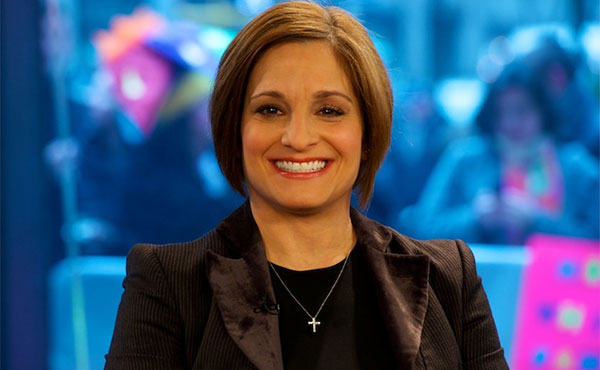
By John Powers
Mary Lou Retton, America’s first golden girl in Olympic gymnastics, made her breakthrough at the 1983 American Cup in New York. On her way to Baton Rouge to cheer on daughter McKenna, who competes for Louisiana State University, Mary Lou dropped by Prudential Center in Newark where this year’s AT&T American Cup will be held on Saturday.
On her first American Cup: "Dianne Durham hurt her hip, and I was put in last minute. I was nobody at that time, just a little unknown. Bela (Karolyi) had arranged for me to be the alternate and I figured I’m just going to sit in the stands at Madison Square Garden and just shoot the breeze. It would be a learning experience for me because I had never been up against the Russians and the top girls in the world. I had nothing to lose, literally…The night before Bela said ‘Mary Lou, this is your chance’. And in typical Bela fashion: ‘Don’t let me down.’ I was like, oh, my gosh. But he knew how to push my buttons.. It was the breakout competition for a lot of us unknowns."
On Simone Biles: "She’s in a class all by herself. Honestly, she’s just untouchable. She can have a couple of falls and still beat everybody. If she goes into the Games healthy, I think she’s unbeatable…Every Olympic Games, they change the Code of Points and every four years a lot of us athletes go, how more difficult can it get? And they do. These athletes are pushing the limits, and she is the leader of that. She’ll add another half twist or something or a jump after. I think she needs to compete with the men and make it fair. She’s so incredibly strong. I don’t want to misspeak but I don’t know of anybody who’s even close to the level of difficulty that she has."
On the 1984 US team: "We were the underdogs. We were the ones always looking to the Russians and the Chinese and the Romanians: What are they doing? Let’s copy them. ’84 started it. We broke that wall down and it was, yes, we can do it, too."
On being the first American idol: "I was 7 watching my first Olympics, watching Nadia in 1976, and that’s where I was inspired. But it was for a Romanian gymnast. The kids that watched me watched an American. That’s the difference and every year, now, it’s the same. They’re inspired by one of their own. I’m very proud to say that I had a part in that."
On why she didn’t compete in another Games: "I knew one Olympics was going to be enough for me. I continued on for another two years, going to the 1985 American Cup and retired in 1986. I wanted to have what I thought would be a somewhat normal college life and all of that. But that was enough for me. I did want to be one of those athletes that people remembered going out on top, not one of those struggling athletes who just couldn’t give it up. That was just not what I wanted to do."
On the Karolyis: "They built the dynasty here in America. It truly is all their doing. It was difficult when Bela stepped down. Not to say they didn’t have a lot of pillow talk at night, but he really didn’t go into the gym. This was Martha’s baby now, and she’s done a tremendous job…Martha’s still got the snap. Most people don’t realize, even back 30 years Martha was the whole engine. She wanted to be in the back. Now, it’s her time to shine."
On the Romanian women possibly not qualifying for the Olympics: "They have another shot in the (April) test event but never in my life would I think that that could happen. It’s a shame. It’s sad. Who knows what’s happening over there?"
On watching McKenna compete: "She has said: ‘My mom is my mom, and I’ve got a different path, this is my road.’ It’s her time. My time’s gone. I’m just the mom holding the big bobblehead."
On her fellow Olympic gold medalists: "It’s a special sorority, and we’re very proud of that fact. I’m the old pioneer that kind of started it. It’s lot of fun. Carly (Patterson) and Gabby (Douglas) and Nastia (Liukin). They’re class acts, really incredible young ladies. I’m proud to be the first."




